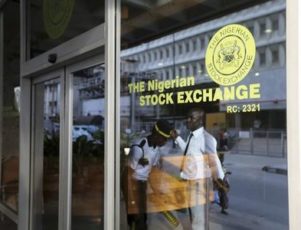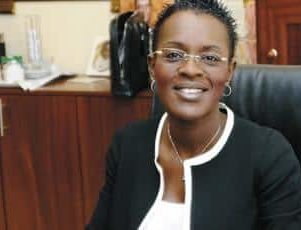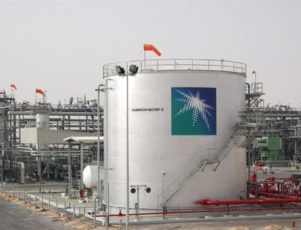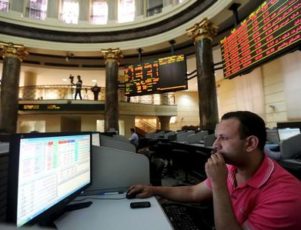Saudi Arabia, the world’s biggest producer of crude oil, is considering a public offering of shares in its state-owned oil company Aramco
Saudi Arabia, the world’s biggest producer of crude oil, is considering a public offering of shares in its state-owned Saudi Arabian Oil Company (Saudi Aramco) and / or some of its downstream assets. The news was announced by the influential Saudi deputy crown prince and the country’s defense minister, 30-year-old Mohammed bin Salman, in an interview with The Economist. He framed it as a step toward transparent governance of state-owned oil and the Saudi market: “I believe it is in the interest of the Saudi market, and it is in the interest of Aramco, and it is for the interest of more transparency, and to counter corruption, if any, that may be circling around Aramco.”
His announcement was reaffirmed in an official statement released by Aramco: “Saudi Aramco confirms that it has been studying various options to allow broad public participation in its equity through the listing in the capital markets of an appropriate percentage of the Company’s shares and / or the listing of a bundle of its downstream subsidiaries.”
Saudi Arabia facing significant political and economic challenges
Many are asking why the royal family would consider selling shares in its largest asset, especially when it’s at its lowest point since 2004. The complete control of Saudi Arabia’s oil is in large part the source of the government’s power and success. Some have suggested that Aramco has predicted the end of the age of oil, and that the Saudi’s are looking to cash out while they can. But, on the other hand, it could be more linked to the Kingdom’s politically and economically challenging time.
Oil income makes up about 90% of government revenue, but with crude oil prices at their lowest levels in over a decade, the Kingdom is losing billions of dollars in revenue. And while it is sitting on around $630 billion in reserves, Saudi Arabia’s 2015 budget deficit was 15% of GDP, and a record budget deficit of $98 billion is expected in 2016. Also, instead of slowing production to increase oil scarcity, as has so often been Saudi Arabia’s tactic, last year, Aramco pumped a record 10 million plus barrels a day to compete with the US and Russia. The strategy cost Saudi Arabia around $120 billion of its foreign currency reserves. And the Kingdom is starting to struggle to maintain its expensive military campaigns in Yemen and Syria, and to manage the resulting clashes with Iran.
The country is also facing high unemployment, currently at 12%, and a demographic bulge, which counts more than two thirds of the population under the age of 30. The bulge will require almost three times as many jobs in the coming decade than were created between 2003 and 2013 during the oil boom if the country is to avoid soaring unemployment and increasing the volatility of the political environment.
So as its most valuable asset shrinks, the Kingdom needs to find a way to diversify its economy in order to improve its long term economic capabilities. Working with McKinsey, Saudi Arabia has developed long term path that involves pushing $4 trillion into eight new sectors (finance, construction, healthcare, tourism and hospitality, retail and wholesale trade, petrochemicals, manufacturing, and mining and metals) to contribute 60% of growth. However, it seems likely that adding value across all of its oil related actions and managing its hydrocarbon resources, both conventional and unconventional, would also be part of the plan to prepare Saudi Arabia for financial and economic stability. It would also signal to Iran, the US, and Russia that Saudi Arabia is in the oil-game for the long-haul.

Saudi Aramco gas facility
Saudi Aramco IPO
The details of the potential IPO are not yet clear. Aramco’s statement confirmed that: “Once the study of these various options is complete, the findings will be presented to the Company’s Board of Directors which will make its recommendations to the Saudi Aramco Supreme Council.” Aramco Chairman Khalid Al-Falih adds: “There is no plan that is concrete at this stage to do the listing. There are studies ongoing. Serious consideration. It will take time.” Falih also clarified that an IPO could be “shares in Aramco and/or some downstream assets. We are considering a listing at the top. So a listing of the main company, and obviously the main company will include upstream.”
But, it does seem more likely that Aramco will offer a small portion of downstream assets – a bundle of refineries or other assets such as petrochemical units – in order to allow the state to retain full control of its oil fields which produce more than 10 million barrels a day. Although significantly less valuable than a full IPO, downstream assets would still offer buyers a piece of a huge global business which processes more than 3.1 million barrels a day, with plants across the world in Saudi Arabia, the US, South Korea, Japan, and China.
$10 trillion valuation
Looking at a full IPO, the valuations are simply enormous. Based on claims that the company’s reserves are 265 billion barrels of crude oil and 50 billion barrels of natural gas, its market capitalization is estimated to be $10 trillion. This would make it significantly bigger than the world’s current most valuable company, Apple, worth $741.8 billion. It would also make Aramco significantly more valuable than ExxonMobil, the world’s current most valuable publicly traded energy company at $357.1 billion.
Even a listing that included just 5% of Saudi Aramco shares could raise around $500 billion, a figure far larger than Alibaba’s history topping $170 billion IPO of 2014. It would also make it too big to be included in Saudi Arabia’s stock market, the Tadawul.
The listing fees for the bank taking a company of this size public would also be huge, and there are already reports of strong competition for the role. HSBC, Citi, Barclays, Bank of America Merrill Lynch, and Deutsche Bank hold the biggest market share in the Middle East and Africa, making them likely contenders. Citi and Deutsche Bank have also already worked on deals with Saudi Aramco. But we’ll have to be patient until we can find out which bank is set to make a figure of around $17.5 billion working on the deal.
Read more





